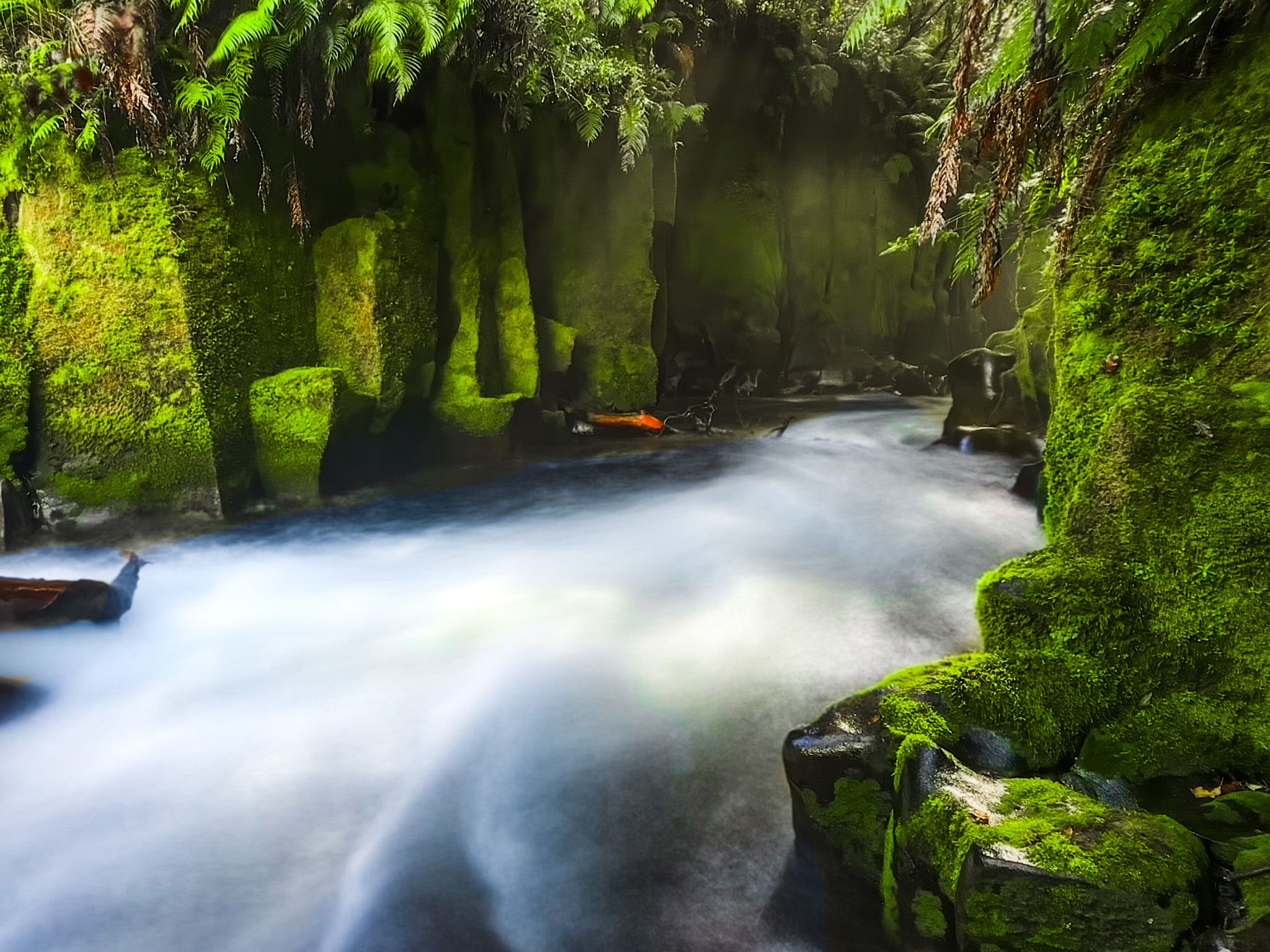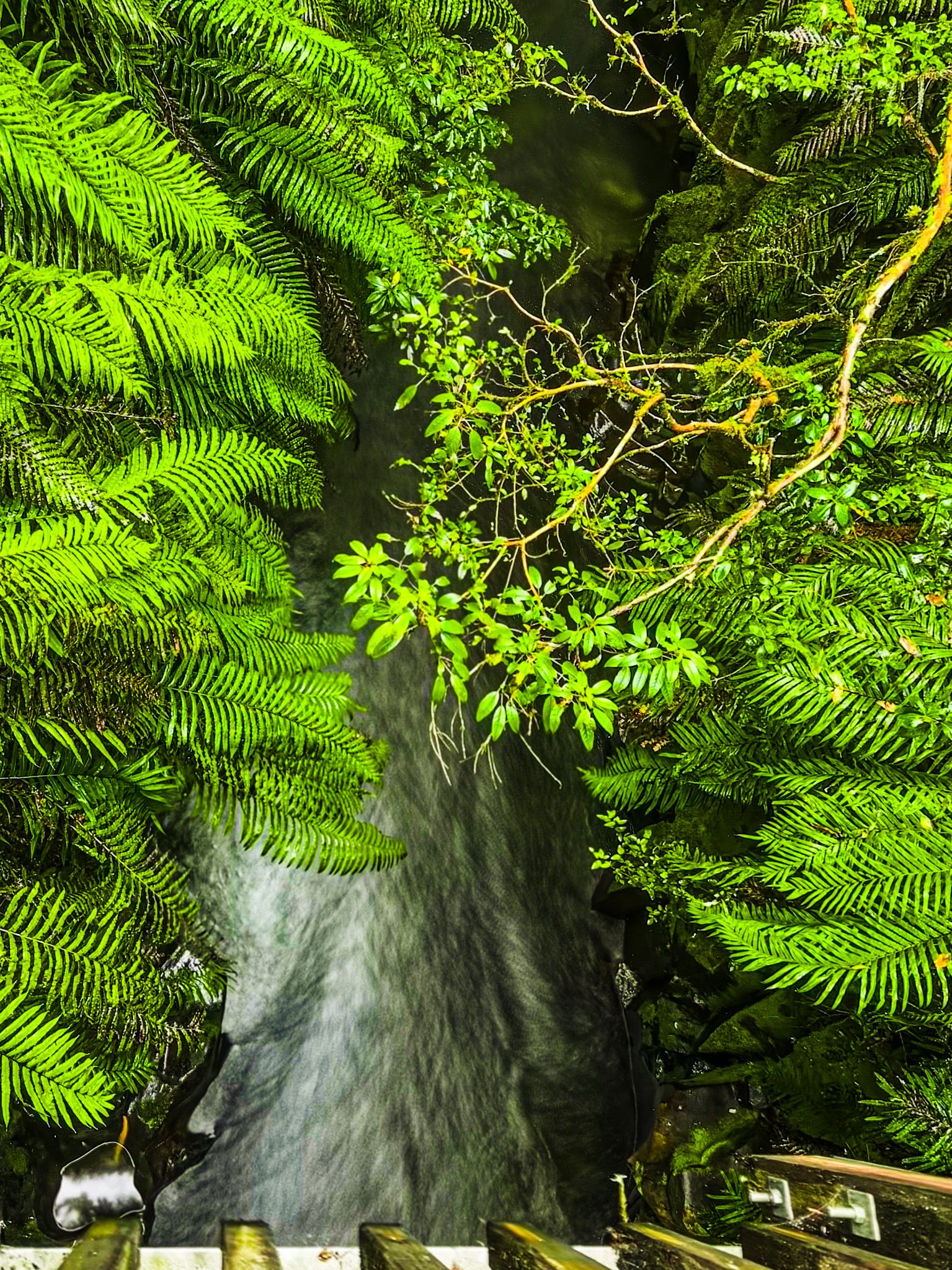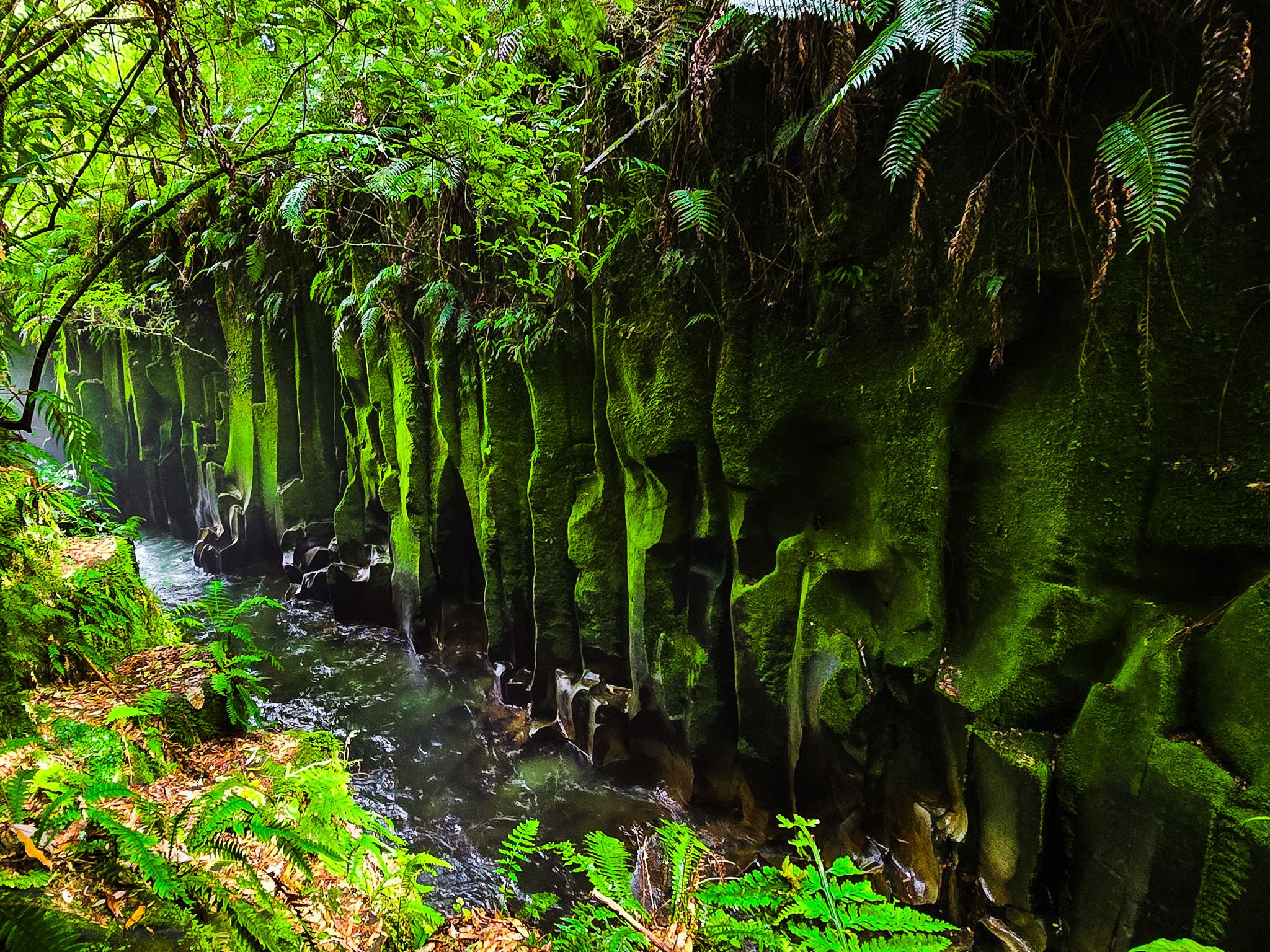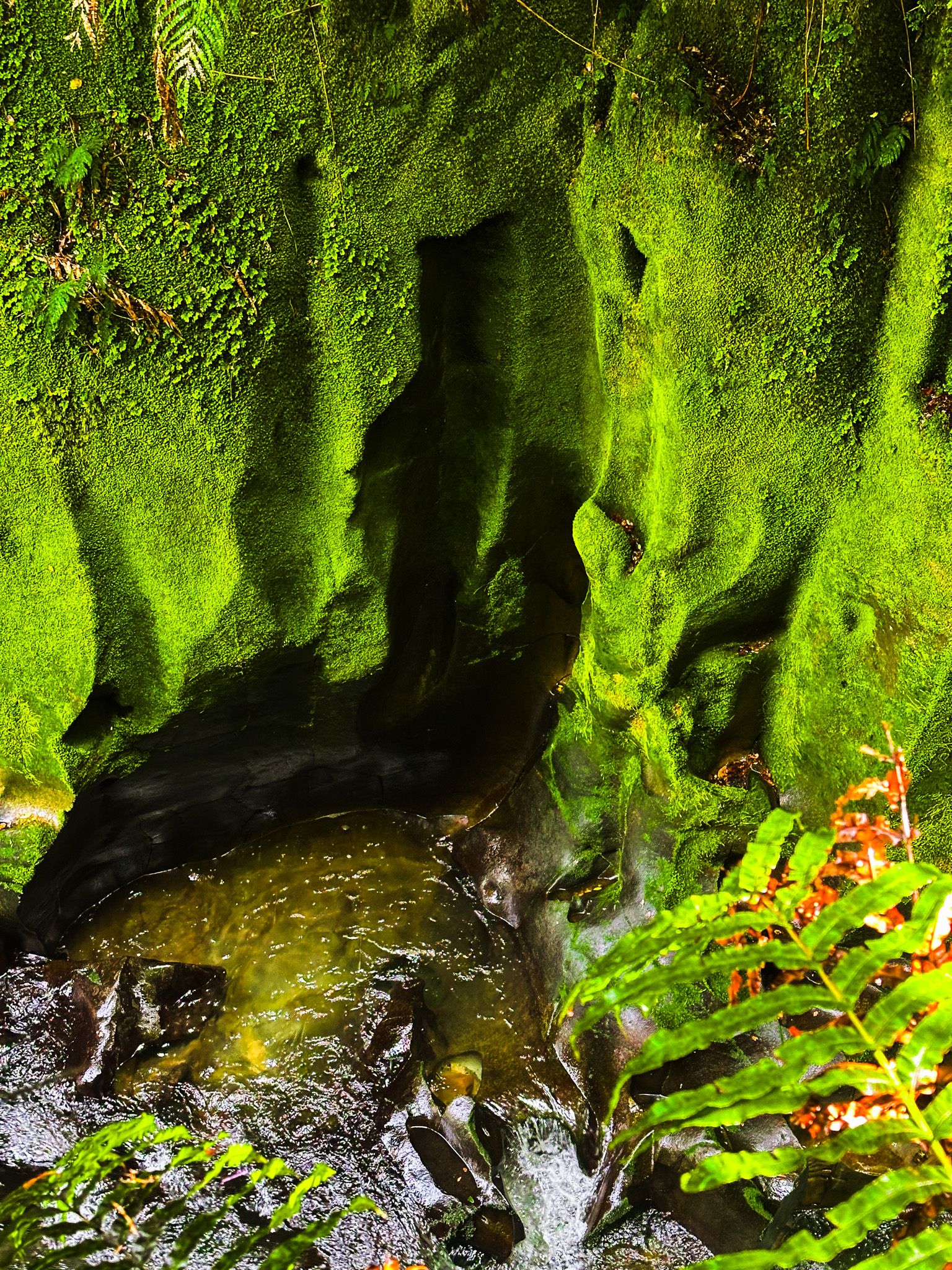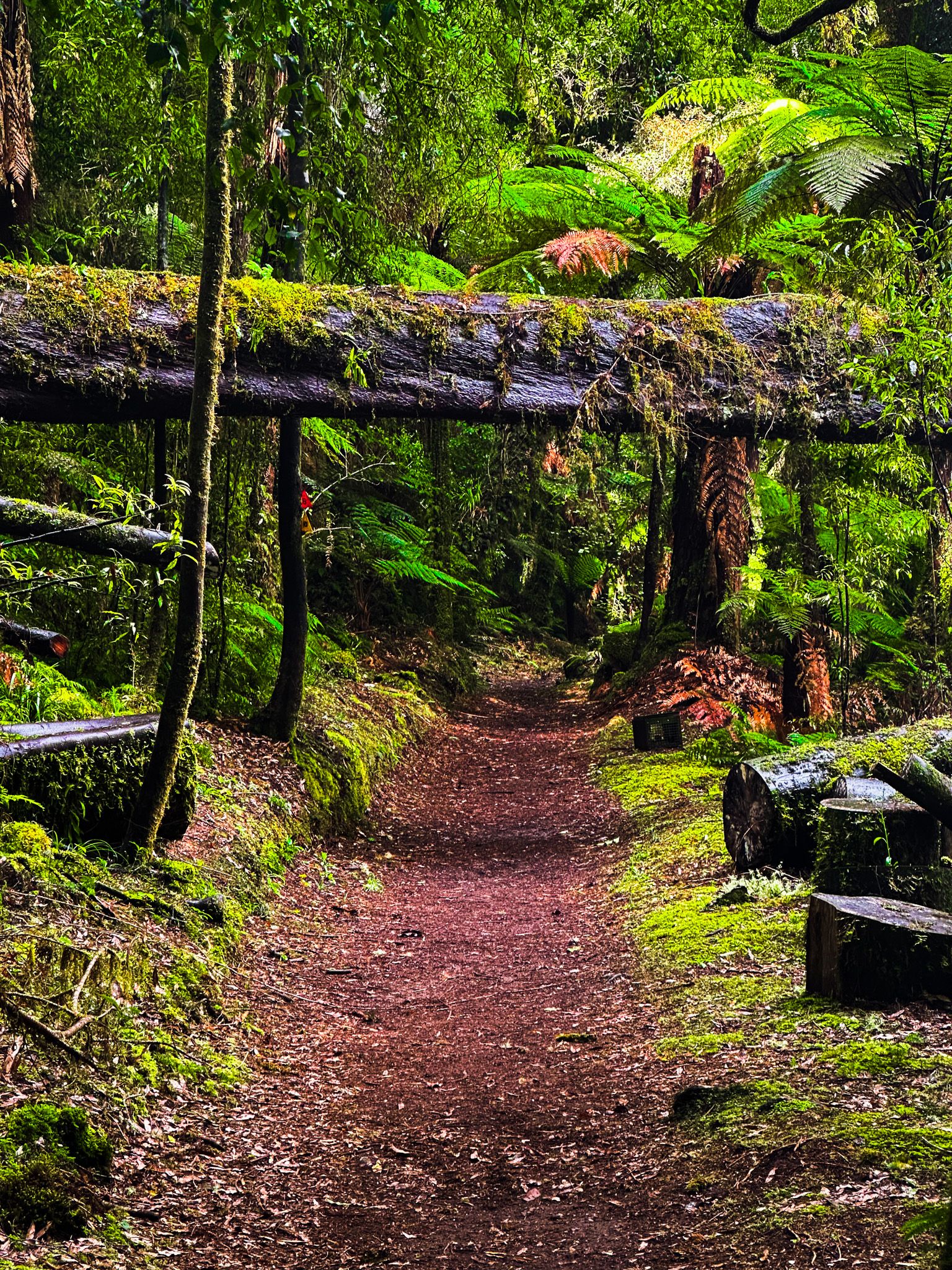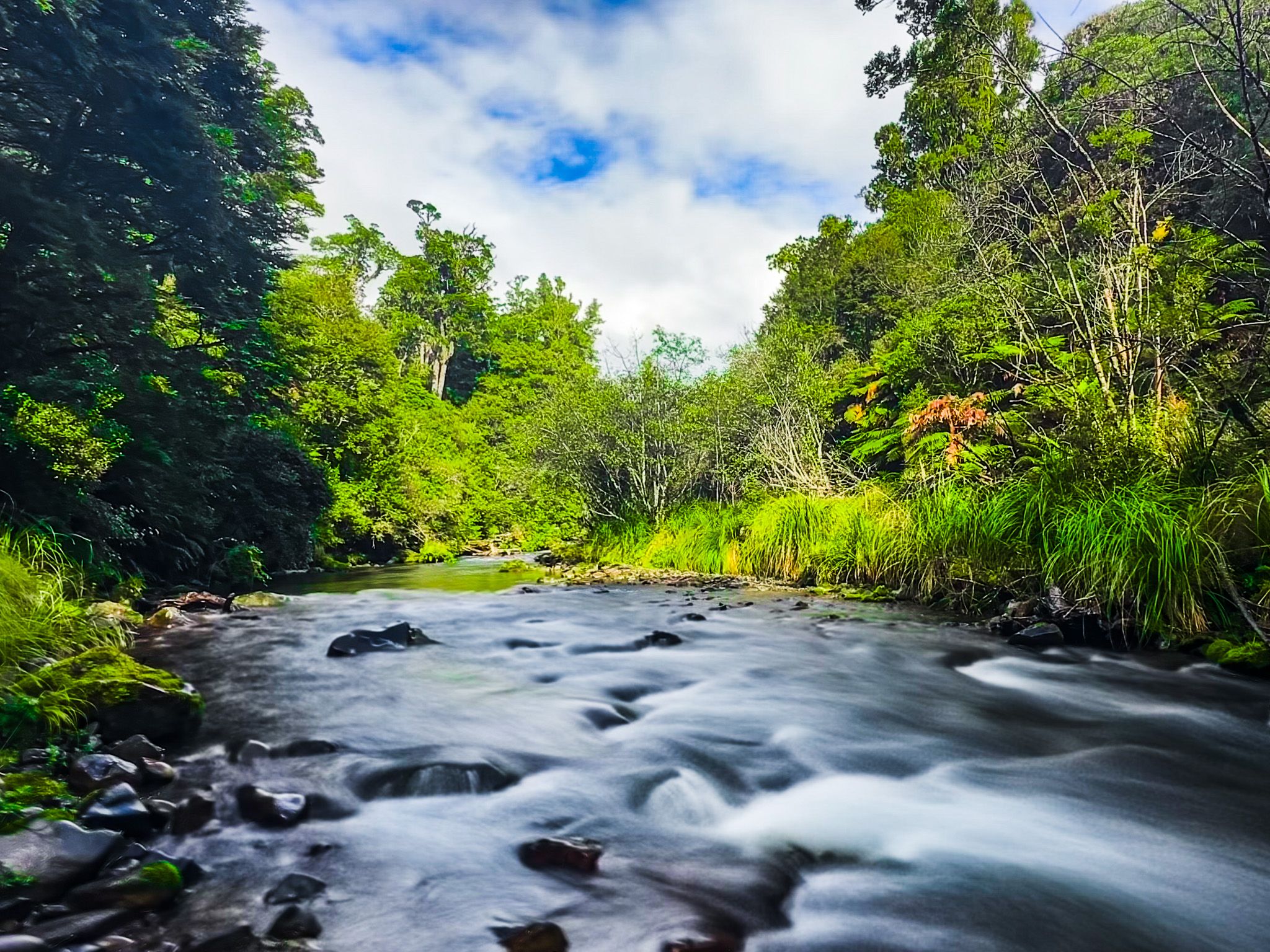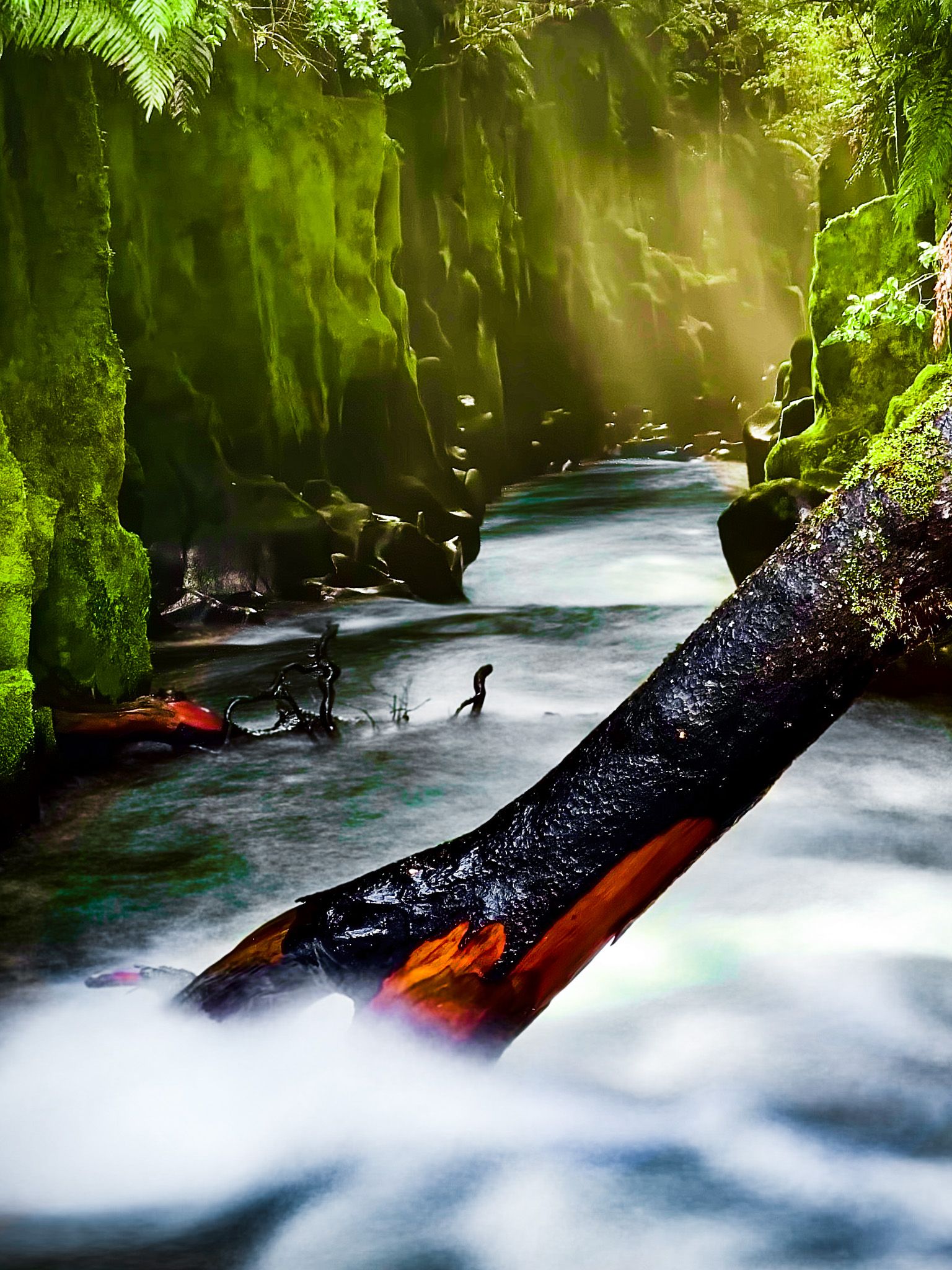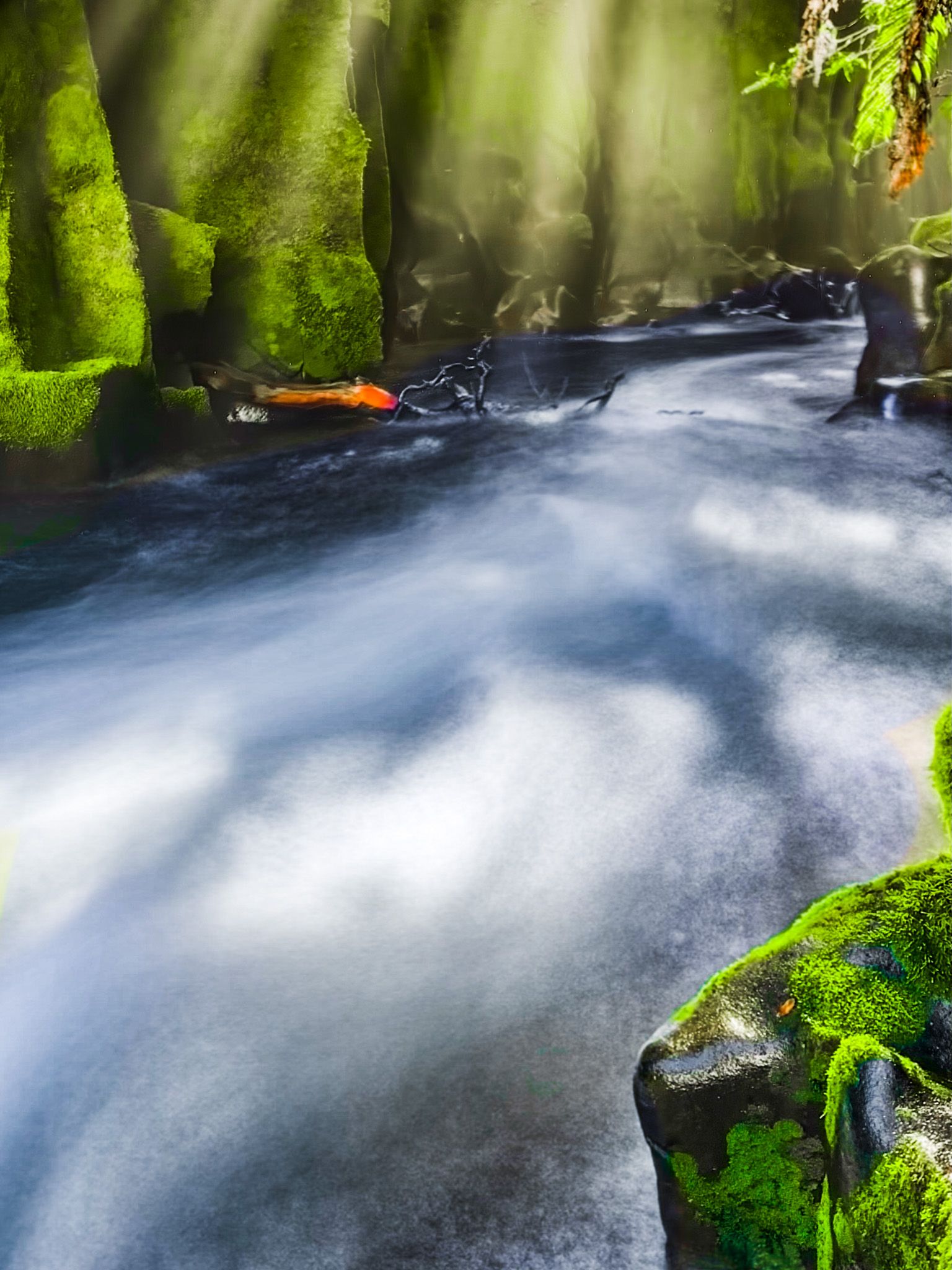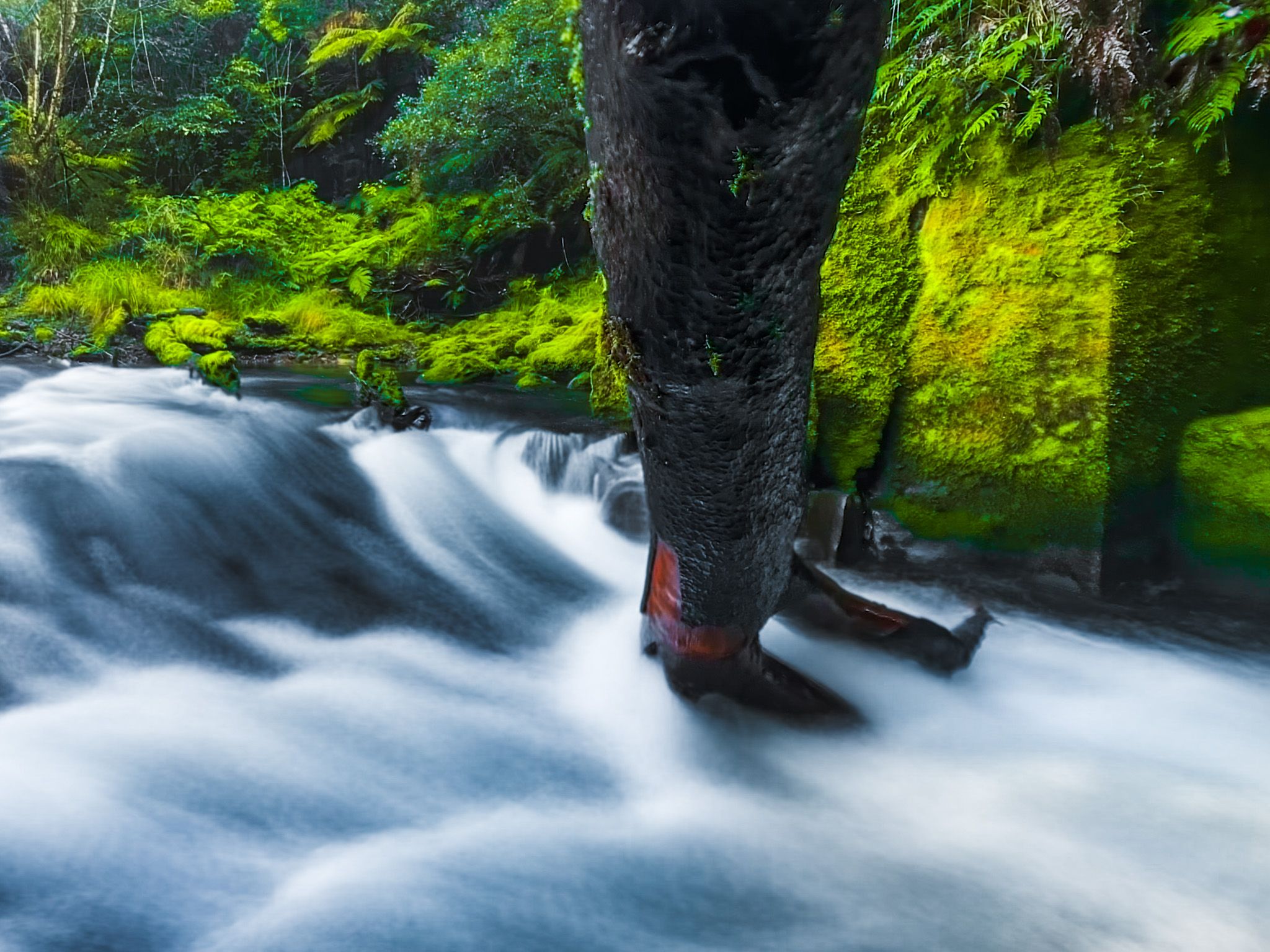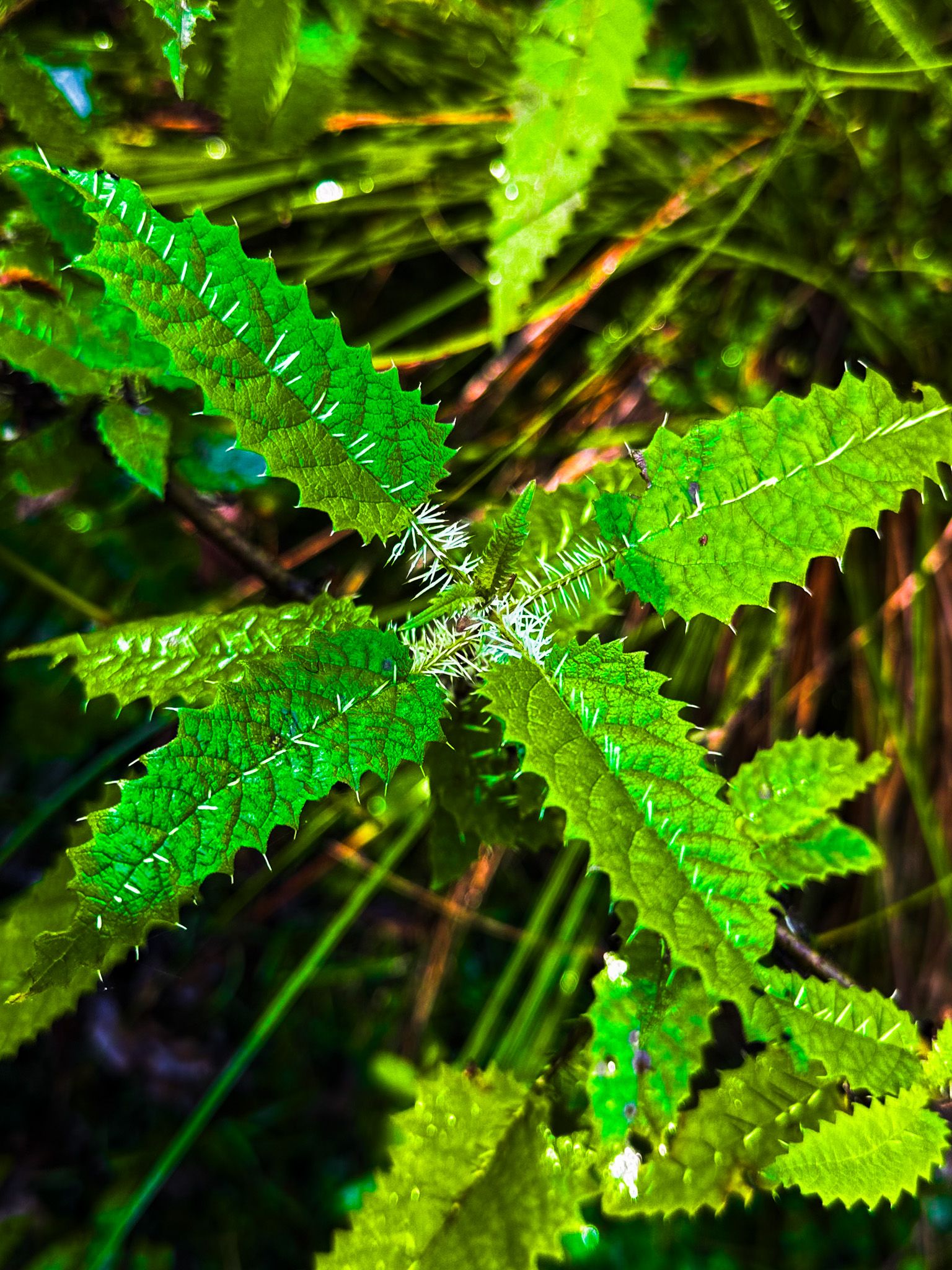Te Whāiti Nui a Toi Canyon is a stunning canyon in Whirinaki Te Pua-a-Tāne Conservation Park. The Whirinaki River flows through the narrow canyon, largely shounded in the rainforest by overhanging trees, ferns, and bushes. Looking into the canyon, the walls are covered in moss and lichen, making for spectacular light and colours.
From the main car park at the end of River Road, it is a short 30-minute return walk along the Whirnaki Waterfall Loop Track. As you approach the river, the west side of the loop heads south. Keep going onto the bridge towards the east side of the river. The bridge gives you a sense of the canyon, but shrubs largely obscure the view. There is a better view by continuing along the track a short distance on the east side, and you will see some places where the forest is a bit thinner. You can walk to the edge of the canyon (sheer 10-metre drop), and those who are brave or foolhardy may even clamber in, holding onto tree roots for a better view.
But there is a much safer option. Walking further down the track, you will pass under a prominent log. Shortly after, it is feasible to push into the shrubs and foliage and reach the river near where it enters the canyon. There is a small beach that allows you to enter the entrance, and you will know you are in the right place if you see the defunct toilet! Watch out for the ongaonga near the river edge, a truly nasty native stinging nettle.
The Māori name for the canyon means "the great canyon of Toi". Local iwi Ngāti Whare are the descendants of Toi Te Huatahi, a prominent, very early ancestor of Māori around the Bay of Plenty and Coromandel, even predating the major waka migrations. His tribe was Te Tini o Toi (meaning Toi’s multitudes). Wharepakau was an ancestor of Toi who led his whānau to the Whirinaki region. With his nephew Tangiharuru, he defeated the local Te Marangaranga and took over the region around the Whirinaki River. The resulting iwi adopted the name “Ngāti Whare” to recognise their founder, Wharepakau, while the canyon was named for his ancestor.
